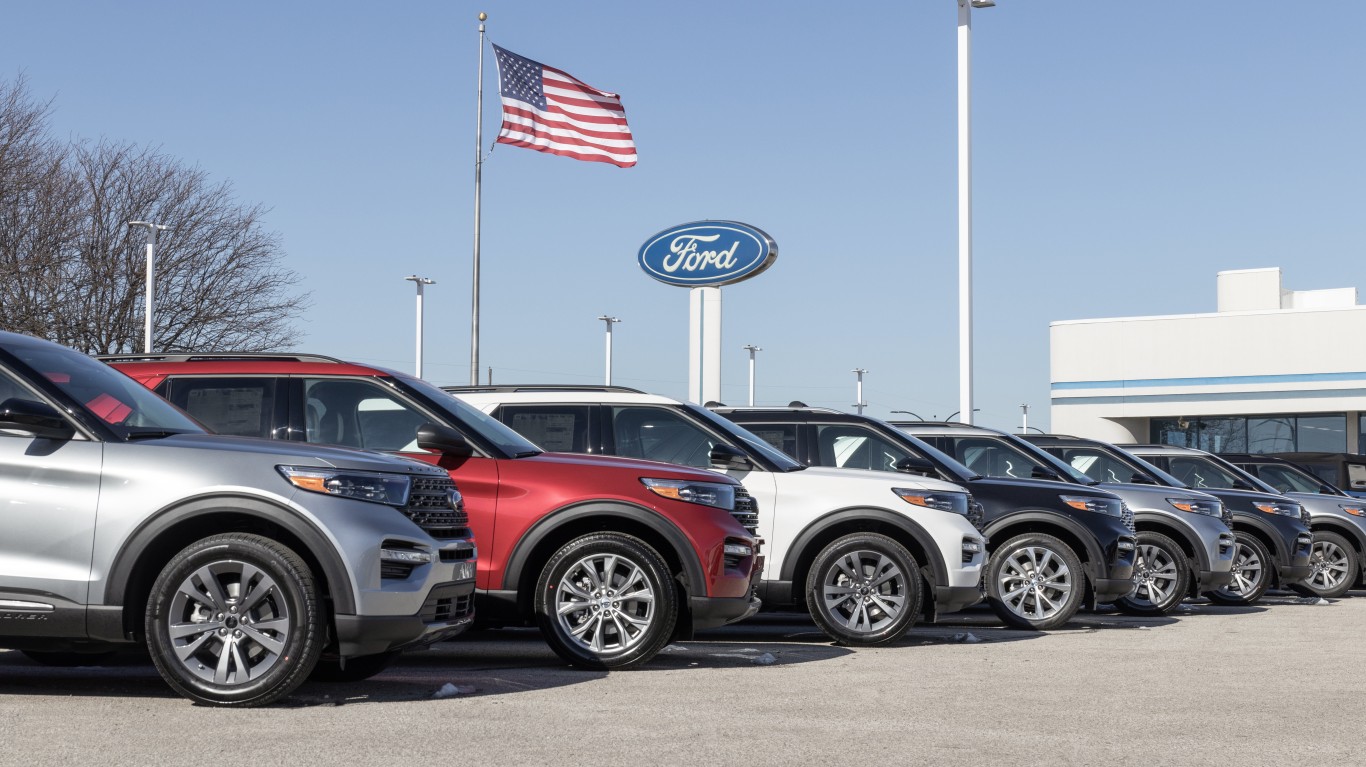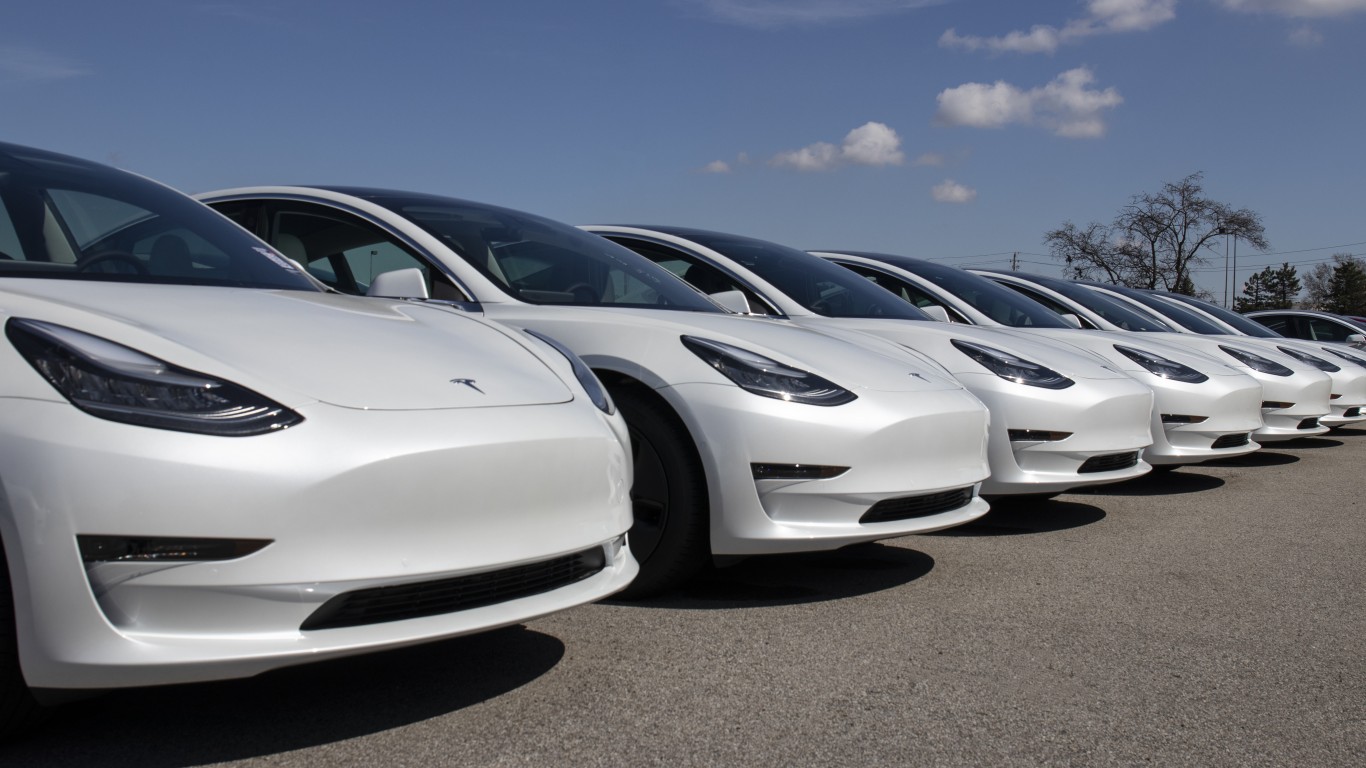
Ford Motor Co. (NYSE: F) posted strong sales in the United States in 2023. It sold 1,995,912 vehicles, up 7% from 2022. Once again, for the 42nd year, its F-series pickups were the top-selling vehicles in America. Ford sold 750,789 of these, up 14.8% from the 2022. Its electric vehicle (EV) sales were stunningly low at 72,608, up 17.9%. So, the increased sales for what Ford calls its future rose at a rate barely better than its gasoline-powered flagship. Put another way, Ford’s EV sales total was 3.6% of all the vehicles it sold. (See the 15 worst-selling electric vehicles last year.)
Ford says EV demand has been slower than expected. CEO Jim Farley cut back plans for a battery cell plant in November. It throttled back its $12 billion planned EV expansion a month earlier. “All told, we have pushed about $12 billion of EV spend, which includes capex, direct investment and expense,” Chief Financial Officer John Lawler said at the time.
However, Ford’s primary rival in the U.S. EV market continues to post surging sales. Tesla Inc. (NASDAQ: TSLA) has about 50% of the American EV market. Its global deliveries rose 38% to 1,808,581 last year. Tesla’s market cap has grown to the point where, at $764 billion, it is 16 times greater than Ford’s.
Ford’s Mistakes

Ford recently made the point that its new United Auto Workers (UAW) union contract would be costly and affect its product development plans. Between signing the deal and 2028, Ford said the contract would cost it $8.8 billion, about $900 a vehicle in 2028. Tesla, which does not have a unionized workforce, also has an advantage in labor costs.
Ford had a hard year for its EV plans in 2023. There is no reason to think that will be better this year.
Thank you for reading! Have some feedback for us?
Contact the 24/7 Wall St. editorial team.



